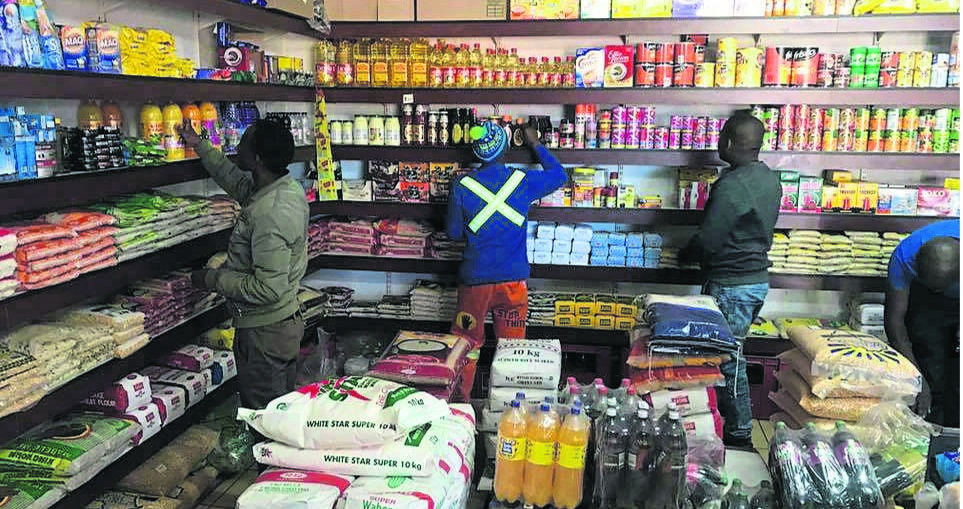TAFADZWA MAKONDO
How is it even possible for renowned giant supermarket brands to face a marked slump as traditionally favourable perceptions decline? What is actually happening in the formal retail and wholesale business sector?
There are two incidents to a story: how it happened, and what happened. The thin line between how and what is where the truth lies. Why a sudden change in the business strategy? When will these businesses stay open?
Fear is palpable on the other side – the formal sector – and fear mirrors the primeval heritage that no amount of intelligence could ever deny. lf a picture could be drawn now of facing a decline, it is being drawn now. There is no secret left.
A considerable number of consumers in Zimbabwe are increasingly opting for tuck-shops – they are crudely informal – since they offer lower prices.
“Traffic is very low these days in most retail and wholesale outlets across the country as the aggregate demand goes down,” bemoaned N. Richards’ Manager Archford Dongo speaking to a news agency.
“I can tell you that I was in a retail outlet and for the past 10 minutes there was not even one customer who came in. The basket has started shrinking towards the basics.”
The astronomical Zimbabwean Dollar prices in the outlets do not accurately and fairly mirror the official exchange rate.
People are rushing to tuckshops since anything is worth shopping that has a connection with the past. The prices back then were lower and the tuckshops have that connection of lower prices.
Loveness Nhekairo, a Harare resident, remarked, “I can’t even step into the supermarkets. The prices there are just staggering. But at these tuckshops and other stalls, it seems that our inflation problem does not exist.”
Owning a tuckshop is increasingly becoming the new business in Zimbabwe now as more customers are gradually shunning renowned outlets such as N.Richards, Pick ‘n’Pay and OK.
Clouds of disaster now hang like frigates ready to storm the outlets.
Consumers are hardly buying fundamental basic commodities in pricey wholesale and retail outlets.
Tuckshop owners are confident as their trade now conforms to their planned patterns of registering noteworthy survival—and perhaps, eyeing growth.
The conventional consumer traffic regarding business for wholesale and retail outlets is now lying within the earshot of selling short as consumers—the majority being the hardest-hit by dire economic conditions—are galloping to tuckshops.
This may drive retail and wholesale outlets into difficulties that cannot be ignored. Management teams have to find strategies and mitigations to strike a tenuous balance between seeking the profit motive and ensuring basic commodities are within the reach of the majority of consumers.
The unbearably soaring inflation is spiralling out of hand. The best telling of buying is the buyer. The tuckshops attractive lower prices and if there were some who once shunned downtown places, they are likely to find themselves being the most familiar with such places.
Customers can't risk paying through the nose when buying from the wholesale and retail outlets especially when they are earning peanuts.
The expensively high Zimbabwean Dollar prices have left a sour taste in the wallets and bank accounts of customers, a currency that ever-teeters on the brink of being a hauntingly fizzling memory.
Downtown business is now the number one-stop-shop for customers in Zimbabwe’s major urban centres and those who are looking for a business venture. This shows how numbers are fleeing the formal sector to the black market. The hikes on the Zimbabwean Dollar, an occasional accident, has its own appeal.
Hyperinflation meets its match in the streets; but no one is spared from this searing crisis. All are feeling the heat.












.jpeg)








0 Comments